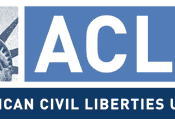Privacy Rights to be addressedThe majority of employees expect to have a certain amount of privacy in the workplace. Nevertheless, there are times where the employer may have a justifiable reason to monitor or investigate the employee's within its organization. The following provides some business practices that may be imposed to assure the honesty of the organization and the employees within the organization.
One privacy right that should be addressed is drug testing. "In a recent government study, 1 in 12 full-time American workers admitted to using illegal drugs within the last 30 days of participating in the survey" (Klein, 2007, p. 14). While controversial, legalized drug testing began on September 15, 1986, after President Regan signed into law Executive Order (EO) 12564. EO 12564, made it illegal for Federal employees to use illicit drugs even off duty (About.com, 2001). Employers have a right to insure that the work environment is free from illicit drug use.
"Employers have the right to expect their employees not to be high, stoned, drunk, or asleep" (American Civil Liberties Union, n.d.). The bottom line is job performance, if you cannot do the job, employers can fire you for drug use (n.d.).
Another issue to be addressed is background checks on potential new hires. The Fair Credit Reporting Act (FCRA) has set guidelines and standards for organizations to follow when implementing a background check. "The FCRA defines a background check as a consumer report. Before an employer can get a consumer report for employment purposes; they must notify you in writing and get your written authorization" (Doyle, n.d.). Even if an employer is just running a basic check for inquiry purposes they must still get permission from the employee. The purpose of the background check is to ensure that information that was provided from the...


